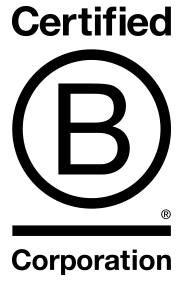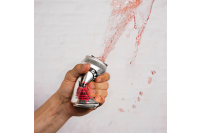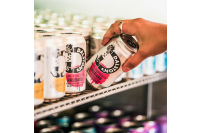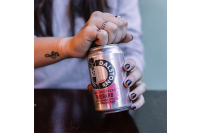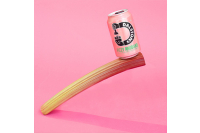Dalston's
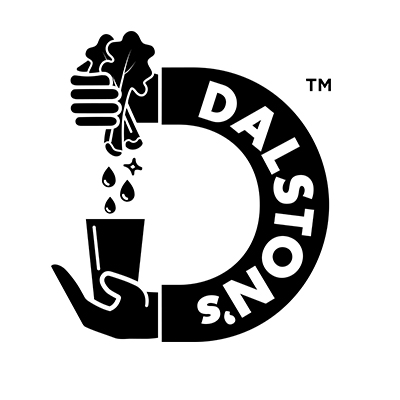
Dalston's
Our craft sodas began life in a club in dalston. They’re rockstars made by our founder and chef, duncan with a knack for blending and bringing out the best in real fruit – which means we don’t pack them with a boat-load of sugar. What’s more, they’re refreshingly responsible – out to do the right thing by our planet and its people. Because ours is soda with soul.
Attributes
- Ambient
- South East
- B-corporations
It all started in the most vibrant and eclectic of East London homes. The iconic Passing Clouds nightclub in Dalston – a hub of spoken word, reggae, gypsy swing and everything in between – was the birthplace of, well, Dalston’s.
It was there that founder and previous chef Duncan O’Brien started mashing and blending the first bottles of Dalston’s Cola by hand in a tiny kitchen to sell at the venue as its alternative to mainstream soft drinks.
“My time as a chef really informed both how we built Dalston’s and our approach to how we make drinks,” he says. “You should find the best ingredients you can, pay a lot of attention to sourcing and then present them in the best way possible.”
The company has come a long way since those first days hand-making cola to sell at Passing Clouds and is now stocked in stores, restaurants and pubs in the UK and even further afield.
The line-up
We produce two ranges of craft sodas. Our core range is a modern twist on classic known fizzy drinks only made better. These come packed with real ingredients, contain no junk and have a 1/3rd less sugar than the mainstream.
“We’ve always used less sugar than our competitors, simply because we felt it wasn’t necessary. The food and drink industry in general adds fat, sugar and salt to mask the use of cheap ingredients. If you simply use better quality materials that are less processed, you don’t have to add as much sugar to make your product taste good.”
Earlier in the year we launched a new range of Seltzers with flavours including ‘Real Squeezed Rhubarb’ and ‘Real Squeezed Elderflower’ which we like to call our ‘Light Sodas’ as they don’t contain any sugar, coming in at only 20 calories per can. We’ve made these using real fruit, distilled botanicals (natural flavourings) and British sparkling spring water. They punch great flavour whilst containing a super permissible low amount of calories.
Most recently we saw the launch of our brand new Sparkling water in a can. Single-use plastic is having a huge impact on our environment – According to the Greenpeace charity, ‘Right now an estimated 12.7 million tonnes of plastic – everything from plastic bottles and bags to microbeads end up in our oceans each year. That’s a truck load of rubbish a minute.’
We’re committed to never introducing plastic into our product supply chain. We currently pack our entire drinks range into aluminium cans and cardboard multipacks which are arguably highly recyclable alternatives to single-use plastic bottles and shrink wraps.
Our can manufacturer, Ball Corporation’s sustainability manager points out that “beverage cans are the most recycled beverage container in the world. They are valuable material, easy to collect and sort and in the UK the recycling rate is already at 72%, with the majority of the cans (92%) being recycled either in the UK or Europe! A can recycled can be back on the shelf as a can in as quick as 8 weeks – this is true circular economy!”
The idea of packing sparkling water in a can
- -
- 7 ate 9
- Aagrah
- Adios Plastic
- All Dressed Up
- All Sorts of Liquorice
- All Things Butter
- Aluna Coconut
- Amundsen
- Anna's
- Anthon Berg
- Antica Amaretteria
- Aqua Carpatica
- Ardens
- Artisan Drinks
- Ask Mummy & Daddy
- Aspall
- Awfully Posh
- Baileys
- Bakedin
- Balsamico
- Banhoek Chilli Oil
- Barbers
- Bath Soft Cheese
- Be:Loved Pet Products
- Beanies Coffee
- BEAR Fruit
- Belazu
- Belfine
- Belvoir
- Bensons Chilly Billy
- Berringa
- Bertagni
- Bertha's Pizza
- Billington's
- Billington's Gingerbread
- Billy Franks
- Bini
- Bio D
- Biomel
- Biona
- Biotiful Gut Health
- Black Bee Honey
- Black Liquorice Co.
- Blackthorn Salt
- Blanco Nino
- Bloody Drinks
- Bold Bean
- Bonds
- Bonne Maman
- Booja
- Booja Booja
- Border Biscuits
- Borgo de Medici
- Borgo de' Medici
- Borough Broth
- Botham's of Whitby
- Botivo
- Bottle Up
- Bower Collective
- Bowser Leaf
- Boynes
- Braes o Gowrie
- Breeder Celect
- Brew Tea Co
- Brickell's Ice Cream
- Brilliant Gin
- British Polo Gin
- Broken Clock Vodka
- Brown Bag Crisps
- Bruce
- Buderim Ginger
- Buiteman
- Burnside Brewery
- Buttermilk
- Buxton Pudding Company
- Cafe Pocco
- Cafedirect
- Cakesmiths
- Calder's Kitchen
- Cambrook
- Camp
- Can Bech
- Candy Kittens
- Canvino
- Cartmel
- Carton Water by Water Works
- Casa Firelli
- Casa Modena
- Casalinga
- Catherine's Originals
- Cavendish & Harvey
- Cawston Press
- Celtic Marches
- Certo
- ChalkStream
- ChariTea
- Charlie & Ivy's
- Cheeky Nibble
- Cheesies
- Chef du Chocolat
- Cheshire Cheese
- Cheshire Cheese Company
- Chewdles
- Chiltern Cold Pressed
- Chimac
- Chimilove
- Chiostro di Saronno
- Chloes
- Choc on Choc
- Chococo
- Chocolate Craft
- Churchill's Confectionery
- Churchill's Confectionery Ltd
- Clarence Court
- Clarks
- Clearspring
- Clotton Creamery
- Cobble Lane Cured
- Cock & Bull
- COCO Chocolatier
- Cocoa Loco
- Cocoba
- Coffee Dunkers
- Coldpress
- Cole's Puddings
- Confiletas
- Conker Spirit
- Cooks & Co
- Coolmore
- Cornish Sea Salt
- Cotswold Fudge Co
- Cotswold Gold
- Cotswold Granaries
- Cotswold Meringues
- Cox&Co.
- Craft & Crumb
- Craft Your Own
- Crespo
- Cricket St Thomas
- Cropwell Bishop
- Crosta & Mollica
- Crosta Mollica
- Crumbs Brewing
- Curds & Croust
- Daioni
- Dalla Costa
- Dalston's
- DANDS
- Danny's
- Darrell Lea
- Dash Water
- Days Brewing
- Dean's
- Dell'Ugo
- Delphi Foods
- Denzel's
- Desobry
- devOATed
- Dewkes Snacks for Dogs
- Diddly Squat
- Diddly Squat Farm Shop
- Diforti
- Dino's
- Divine
- Divine Chocolate
- Dog By The Hob
- Doggy Baking Co
- Doisy & Dam
- Dolcital
- Dot Dot Bubble Tea
- Double Dutch
- Double Dutch Drinks
- Doves Farm
- Dr Will's
- Drivers
- DRTY Drinks
- Due Vittorie
- Eager Drinks
- Easy Bean
- Eat 17
- Eat Real
- Eco Green Living
- ecoLiving
- Ecozone
- Edinburgh Gin
- EDMUNDS Cocktails
- Elegant & English
- Elizabeth Shaw
- Ella's Kitchen
- Emily Crisps
- Emily Seaweed
- English Cheesecake Company
- English Tea Shop
- EPIC
- Esplosivo
- Famous Names
- Farmhouse Biscuits
- FATSO
- Feletti
- Fen Farm Dairy
- Fentimans
- Fermary
- Fever
- Fever Tree
- FieldGoods
- fiid
- Firefly
- Fish4ever
- Fix8 Kombucha
- Flawsome!
- Flower & White
- FoieGood
- Folkington's
- Foraging Fox, The
- Forest Feast
- Foresta
- Forno Bonomi
- Franklin & Sons
- Freddie's Farm
- Free & Easy
- Freee
- Freestar
- Freja
- Friends
- Fruits of the Forage
- Furniss Love Cookies
- Future Candy
- Gadeschi
- Galipette
- Garofalo
- Gåva Gifting
- Gavottes
- Geo Watkins
- Gingerbread Kitchen
- Glebe Farm
- GNAW
- Gnaw Chocolate
- Goats of the Gorge
- Golden Hooves
- Good & Proper Tea
- Good Phats
- Goodchap's
- Gordon Rhodes
- Gourmet du Village
- Gran Luchito
- Grandma Wild's
- Grate Britain
- Green Cuisine
- Greens & Greetings
- Greens Glastonbury
- Grey Poupon
- Gusto Organic
- Gusto Organic Ltd
- Gymkhana
- H!P Chocolate
- Hackney Gelato
- Hadji Bay
- Hampshire Cheese Co
- Hansel
- HAPPi
- Harrogate Water
- Harry Brompton's London Ice Tea
- Hasslacher’s
- Hattiers Rum
- Hawkshead Relish
- Hawkstone
- Hazer Baba
- Hebridean Baker
- Hedgepig
- Hedonist Bakery
- Henderson's Relish
- Herby Hog
- Higgidy
- Hilltop Honey
- Hippeas
- Hitzkopf
- Hive Mind
- Hodmedod's
- Hogs Back Brewery
- Holdsworth
- Holdsworth Chocolates
- Holmes Bakery
- Holy Cow!
- honestfolk
- Honeyrose
- Hoopers
- HOP'T Sauce
- Howdah
- Hullabaloos Drinks
- Imaginative Cuisine
- Ines Rosales
- Infinity Brands
- Isigny St Mere
- Island Bakery
- Islands Chocolate
- It's Soya Good by Organico
- It´s Caramel
- James White
- JD’s Hot Honey
- Jealous Sweets
- Jelly Belly
- Jimmy's Iced Coffee
- Jo Deakin
- Joe & Seph's
- Joe Tea
- Jörg Geiger
- Joseph Heler
- JOYBOX
- Joypots
- Jude's
- Jude's Ice Cream
- Jules Destrooper
- Julie Dodsworth
- Kabuto Noodles
- Kallo
- Karine & Jeff
- Kent & Fraser
- Keto Hana
- Kikkoman
- kin + deum
- Kin Vodka
- Kind Bag
- Kinda Co
- Kirkjuvagr
- Klepper & Klepper
- Kooky
- Kopernik
- Kuhne
- LA Brewery
- La Drogheria
- La Mare Wine Estate
- La Perruche
- Labre's Hope
- Laithwaites
- Lakeland Artisan
- Lakes Distillery, The
- Lambertz
- Laughing Dog
- Lava Cheese
- Leksands
- Lemonaid
- Leone
- Les Chevaliers d'Argouges
- Lily O'Brien's
- Lir Chocolate
- Little Beast
- Little Beau Sheep
- Little Pasta Organics
- Little Pod
- Little Soap Company
- Little's
- Little's Coffee
- LittlePod
- Living Things Soda
- Loacker
- Loison
- LoneWolf
- Long Tail
- Longman
- Lost Sheep Coffee
- Lottie Shaw's
- Lotus
- Love Cocoa
- Love Corn
- Love Sum Dumplings
- Lucky Saint
- Lucy Bee
- Lucy's Dressings
- Lumberjaxe
- Luscombe Drinks
- Lyme Bay Winery
- Maclean's Highland Bakery
- Macneil's Smokehouse
- Made For Drink
- Maison De Florentins
- Malaco
- Mallow & Marsh
- Mama Buci
- Mamma Emma
- ManiLife
- Manomasa
- Marabissi
- Marleybones
- Marshfield Farm Ice Cream
- Mary Berry's
- Mash Direct
- Mattarello
- Mauri
- Mawson's
- Mazzetti
- Medical Supermarket
- Meg Rivers Bakers of Happiness
- Mellow Yellow
- Mermaid
- Mighty Fine
- Miller's
- Miller's Baker & Barista
- Miller's Elements
- Miniml
- Miss American Pie
- Mister Free'd
- MOJU
- MOMO Kombucha
- Mondovino
- Monin
- Montezuma's
- Montezuma's Chocolates
- Monty Bojangles
- Mother Root
- Motif
- Mr Filbert's
- Mr Filberts
- Mr Fitzpatrick's
- Mr Organic
- Mr Stanley's
- Mr Trotter's
- Mrs Crimbles
- Mrs Tilly's
- Muraglia
- Mutti
- My Favourite Bear
- Mydflower
- N & D Walsh
- Naksha
- Nando's
- Native Snacks
- Natural & Noble
- Natural Candy Shop
- Neat
- Nettlebed Creamery
- Nevis
- Nice
- Nice Rice
- NMK
- NOBL WATR
- Nojo
- Northern Pasta Co.
- Nougat Chabert & Guillot
- Noveltea
- Nudie
- Oat Avenue
- Odysea
- Officina Nobili Bonta
- Old Hamlet Wine & Spice
- Old Hardisty
- Olina's Bakehouse
- OLLY's
- Ombar
- OMGTea
- One Water
- ONiT
- Only
- ONSURI
- Opies
- Orexis
- Organico
- Organics
- Original Biscuit Bakers
- Orkney Bakery
- Oryx Desert Salt
- PACK'D
- Pact Coffee
- Paddington Bear
- Panificio Bo
- Pappadkis
- PARK LiFE
- Parmareggio
- Pate Pour Vous
- Patteson's Original
- Patum Peperium
- Pea Green Boat
- Peace &
- Pegoty Hedge
- Pelagonia
- Peppersmith
- Percy's
- PerfectTed
- Perry Court Farm
- Perry's Cider
- Persis
- Pertzborn
- Peter's Yard
- Petits Grecs
- Pinkster
- Pip & Nut
- PIP Organic
- Pipers
- Plamil
- Pointer
- Popcorn Kitchen
- Popcorn Shed
- Porter
- Pots & Co
- Potts
- Potts'
- Powerbeärs
- Pretzel Pete
- Primrose's Kitchen
- Prodigy
- Proper
- Pukka
- Pureety
- Qcumber
- Quaranta
- Ramus Fresh
- Random Harvest
- Raspberry Blossom
- Rayners
- RBG Kew Preserves
- Re:Nourish
- REAL
- Rebel Kitchen
- Remedy
- Renegade Brewery
- Revibed Drinks
- Rhythm 108
- Richard Hammond
- Ridgeway Brewing
- RiSE Coffee Box
- Rivoltini
- RJ's Licorice
- Roastworks Coffee Co.
- Rocky Mountain
- Rodda's
- Rogue
- Ross & Ross Gifts
- Rubies in the Rubble
- Rude Health
- Sauce Shop
- Savoursmiths
- Savyll
- Scoop's Ice Cream for Dogs
- Scrumbles
- Scrumble’s
- Scrumshus Premium
- Seafood & Eat it
- Seedball
- Seep
- Seep Living
- Selsley
- Serious Pig
- Shaken Udder
- Shaken Udder Ltd
- Shandy Shack
- Sharp & Nickless
- Shipton Mill
- Shortbread House of Edinburgh
- Shortbread House of Edinburgh Ltd
- Silver Crane
- Silver Spoon
- Simon Weaver
- Simply Delicious Cake Co
- Single Variety Co
- Sipsmith
- Slabs Crisps
- Slattery
- Sloane's Hot Chocolate
- Smith & Lewis
- Smith & Sinclair
- Snaffling Pig
- Snowdonia
- Soda Folk
- Soffle's
- Some Grub
- Sorini
- Specialite Locale
- Spencerfield
- Spice Kitchen
- Spice Pots
- Spicentice
- Spooners
- Spruce
- Squeaky Bean
- Stackable Pancake Co.
- Stag Bakeries
- Stephan Destrooper
- Stockan's Oatcakes
- Stockley's
- Stockleys
- Stokes
- Strong Roots
- Sublime Butter
- Summerdown
- Summerdown Mint
- Sunita
- Sunrise Patisserie
- Superfoodio
- Supper Club
- Surreal
- Sweet FA Gluten Free
- SweetDoughThings
- Sweets in the City
- Taste of Game
- Taylor & Colledge
- Taylors
- Teapigs
- Tempus
- Teoni's
- Terre dei Trulli
- Thanks Plants
- The Barking Bakery
- The Berry Juice Company
- The Bottled Baking Co
- The Brandy Snap Co
- The Cheeky Panda
- The Cheshire Cheese Co
- The Cocoabean Company
- The Coconut Collaborative
- The Collective
- The Coolives
- The Curators
- The Curry Sauce Co
- The Drinks Bakery
- The Estate Dairy
- The Farmers Son
- The Fresh Fish Shop
- The Fresh Pasta Company
- The Garlic Farm
- The Glorious Mess
- The Good Zest Company
- The Great Australian Licorice Company
- The Happy Pear
- The Jelly Bean Factory
- The Jerk House
- The Mallows
- The Original Baker
- The Original Black Garlic
- The Original Cake Company
- The Original Chicken Crackling
- The Pilchard Works
- The Recycled Candle Company
- The Snaffling Pig
- The Spice Sultan
- The Treat Kitchen
- The Uncommon
- The Yorkshire Pasta Company
- Thomas Fudges
- Three Mills
- Thursday Cottage
- Tideford Organics
- Tims Dairy
- Tiptree
- Tony's Chocolonely
- Torres
- Trash & Treasure
- Tregroes Waffles
- Trip
- TrueStart Coffee
- TruffleHunter
- Trustin
- Turtle
- Two Farmers
- TyNant
- Uncle Joe's Mint Balls
- Unearthed
- Union
- Unpackaged
- UP
- Urban Fruit
- Vadasz
- Van Strien
- Vecchio Mulino
- Vent for Change
- Very Lazy
- Vet's Kitchen
- Village Maid
- Vitacore
- Vivani
- Von Der Heide
- Walkers Nonsuch
- Walkers Nonsuch Limited
- Walkers Shortbread
- Wally and Whiz
- Warner's Distillery
- Wash With Leaf
- Welshhomestead Smokery
- Wessex Mill
- What a Date®
- Whitakers
- White Heron
- White Lake
- White Mausu
- Whitebox Cocktails
- Who Gives a Crap
- Wholey Moly
- Wicklein
- Wild Island Ltd
- Wild Thingz
- Wildflower Wishes
- Wildlife World
- Williams Handbaked
- Williamson Tea
- Willie's Cacao
- Willys ACV
- Wilton London
- Wilton London Ltd
- Woolf's Kitchen
- World of Sweets
- World of Zing
- Wye Valley Meadery
- Xochitl
- Yeo Valley
- Yummycomb
- Zaini
- ZaraMama
- Zaytoun

